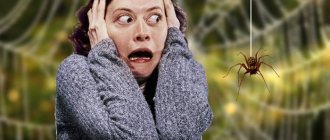.
Fear of driving can manifest itself not only in beginners, but also in experienced drivers. Reasons play a role here. If in the first case the reason is lack of experience, then in the second it is participation in an accident. In both cases, it is difficult for a person to overcome his fear and drive along busy streets and intersections. This fear is called amaxophobia.
The fear of driving a car is called amaxophobia.
What is motorophobia?
Amaxophobia (ancient Greek: carriage and fear) is a common phobia these days, which appears when the individual defense mechanisms of the human psyche are highly active before traveling by vehicle, and is also a fear of carriages. Most often it manifests itself in people who have survived an accident, children and witnesses of terrible accidents. Amaxophobia can be either an independent phobia or accompanying other fears, for example, hypengiophobia (fear of responsibility), criminophobia (fear of committing an offense), pyrophobia (fear of fire and fire) or thanatophobia (fear of death).
Erythrophobia - fear of blushing
Erythrophobia is a specific social phobia in which people are afraid of blushing because it tends to attract the attention of others. This begins a vicious cycle of anxiety and redness that gets worse over time. The underlying fear is social anxiety, not blushing. Cognitive behavioral therapy can help treat this phobia.
To understand erythrophobia, let's first understand why we blush. Blushing is an involuntary reaction that is triggered by our nervous system and is part of the fight or flight response. It is a complex, self-perpetuating phobia that can intensify as anxiety increases. Blushing is a response to several things, one of which is anxiety.
When we are anxious, the level of adrenaline in our body increases, which causes the blood vessels to dilate, resulting in increased blood flow. It also causes vasodilation (dilation of blood vessels) in the veins of our face, which causes redness.
Causes
There are many reasons why a person develops motor phobia. Often, this problem arises after experiencing an accident or when a person witnesses death as a result of a traffic accident. Psychosis or violent fantasy increases the likelihood of psychotrauma.
- The fear of driving a car (phobia) arises due to a person’s premonition that he is in mortal danger. Such panic fear is often groundless, with no objective circumstances for it.
- According to scientists, amaxophobia can be inherited genetically. An individual inherits from his parents or ancestors anxious and suspicious characteristics of the psyche, which can manifest themselves under certain circumstances.
The reason for fear when traveling on transport must be sought in the human imagination. Attacks of fear can be caused by unforeseen circumstances on the road.
How to overcome your fear
How can you learn to deal with your fear? In practice, the fear of driving is easier for an experienced driver to overcome than for a novice. There are various techniques and ways to quickly get rid of your phobias and enjoy driving. You need to decide on your goal and motivation. Ask yourself why you need this. If your spouse, parents or friends are pushing you to attend a driving school, you are not yet “ripe” and you need to wait a little. The chances of coping with a phobia are much greater for a person who has set a specific goal. Today, many types of work require having your own car. The car allows you to significantly expand your capabilities in terms of independence and comfort of movement.
If a beginner develops fear after a short break in driving, this is normal. You need to fight fear with practice. The more hours a person spends behind the wheel, the more confident he will feel. If fear arises while studying at a driving school, it is very important to develop the correct sequence of your actions. You need to start driving at the racetrack. Mastering parking and entering the garage is the most difficult aspect of learning. After acquiring these skills, you can move on to less busy roads, and only then into busy traffic.
If you are not confident in your instructor, then it is better to enroll in extreme driving or emergency driving courses. Such courses provide detailed instructions on how to avoid emergency situations on the road. Install a warning sign on your car that you are a novice driver. In any situation, remain calm. Turn on your hazard lights and pull over to the side of the road. Calm down and then solve your problem.
Often newcomers are overcome by fear of passing the traffic police exams. This is a completely normal feeling for any person. Give yourself the mindset that this is an ordinary test of knowledge, and if you fail the task, nothing bad will happen. There is always the opportunity to retake.
Emergency driving courses will help relieve uncertainty
Peculiarities
The strength of the shock that a person has experienced may vary. In this regard, the manifestation of amaxophobia may have different signs and be more or less pronounced. A driver or passenger cannot fully control the situation on the road; there are always circumstances that are beyond their control. Unforeseen and uncontrollable events, for example, road accidents, often provoke the occurrence of amaxophobia. Scientists say that the most common reasons are traveling by car in bad weather conditions, difficult highways with busy traffic, and traveling at night. Strong anxiety can be caused by a feeling of responsibility for the passengers sitting in the car. Many drivers get nervous when they have to drive someone else's car.
To the question “Is Amaxophobia a fear or a disease?” scientists answer unequivocally: amaxophobia is not a disease, people susceptible to this phobia are considered absolutely normal.
Rational fear of driving
The anxiety that takes over a person when he has to get behind the wheel does not always indicate the presence of a phobia. Fear of driving is a very common occurrence. Rational fear is usually not associated with the experience of an accident, but is a consequence of inexperience. Novice drivers and drivers who have not driven for a long time are afraid to drive a car.
Concerns of inexperienced drivers:
- A person who is not accustomed to the size of his car is afraid of passing oncoming traffic.
- Ignorance of the internal structure of a car and the basic principles of its operation gives rise to the fear that the car will unexpectedly spin out of control.
- A person who doubts his knowledge of traffic rules is often afraid of causing an accident or hitting a pedestrian.
- An inexperienced driver is afraid of incurring anger from other road users.
- Experienced car enthusiasts say that the biggest mistake a newbie makes is avoiding the driver's seat. Only experience can relieve all worries.
Symptoms and signs
The mild form of this disorder is limited only by excessive nervousness when driving vehicles. In severe cases, the following may occur:
- Cloudiness in the eyes.
- Shortness of breath just thinking about the prospect of an accident on the highway.
- A person suffering from motor phobia may experience sudden changes in heart rate.
- Body weakness may occur.
- Limbs go numb.
- Nausea, vomiting, incontinence, problems with urination.
- Profuse sweating.
- A person may cease to understand where he is at the moment and lose orientation in space.
- The world around us can become unnatural in the eyes of the possessed.
- A person may have the feeling that life is leaving him.
Venustrophobia - fear of beautiful women
Venustrophobia , also known as "caliginephobia" , is distinct from the fear of women (gynophobia). People who suffer from this phobia feel shortness of breath, sweating, nausea and other symptoms when they look at or are in close proximity to a beautiful woman.
Many people also experience panic attacks. Their phobia may cause them to keep their distance from people they consider beautiful. The reason for this fear is rooted in the unconscious state, where it is likely that an unfortunate event involving a beautiful woman may have occurred in the past. Different people exhibit different degrees of symptoms.
Varieties
This phobia can be individual in nature or be part of larger mental illnesses.
Types of amaxophobia are divided into:
- Fear of traveling, getting into an accident;
- Fear of certain specific types of transport - trolleybuses, cars, trains, etc.
- The inability to travel in cars that have a specific distinctive feature, for example, a car of a certain brand or a certain color.
- Experiences of a social nature. Fear of driving cars that can damage a person’s image.
The car and the first negative experience of humanity
The first accident involving self-propelled vehicles occurred in Paris in 1771. To avoid hitting children on the road, engineer Cugno, driving a homemade steam tractor, was forced to turn and crashed into the wall of an armory.
An accident involving two vehicles (an electric car and a bicycle) occurred in New York on May 30, 1896. The injured cyclist suffered a broken leg.
First car
The first arrest for speeding was also made in New York. The taxi driver who recklessly accelerated to a speed of 19 km/h was detained.
The first accident involving the death of a pedestrian occurred in England in 1831. A woman who unexpectedly stepped onto the road died under the wheels of a car. These events opened a continuously growing list of road accidents.
But how to learn not to be afraid to drive a car, how to get rid of a phobia?
For motor phobia, therapy consists of the patient independently (without hospitalization) taking psychotropic medications prescribed by the doctor. The drugs effectively stop the attack and block its development to a critical state. Medicines are then taken for several months to prevent relapse. Properly selected medications will ensure a positive result in a short time. The person becomes much calmer, signs of the presence of a phobia disappear. Some people practice psychotherapeutic methods.
To the question of how to stop being afraid of driving, psychology has its own solutions that can be applied without the use of medications. There are a large number of techniques that can make a person overcome fear.
Gamophobia - fear of marriage
Many people experience the opposite of gamophobia, called anuptaphobia, which is the fear of being alone. Gamophobia , on the other hand, is the fear of marriage, relationships, or commitment. For example, a person suffering from this phobia may fall in love with a person, but his love may change to hatred when it comes to marriage. Phobias are associated with a number of personality disorders.
Self-treatment
On the Internet you can find a lot of literature on how to deal with fear as a novice driver. Meditation and various spiritual practices help well. Psychologists also recommend using visualization to solve problems. Visualization is a mental simulation of a situation that is bothering you, in this case you need to imagine how you are driving a car and try to gain control over the situation in your thoughts. We are often asked the question: “I’m afraid to drive a car around the city, what should I do?” The best solution in this situation may be to go to a psychologist.
Phobophobia - fear of phobias
Having a fear of a phobia or phobias is closely associated with anxiety disorders. Phobophobia is specifically the fear of the sensations a person experiences when they are afraid or encounter a pre-existing phobia. A person may develop phobophobia in their unconscious state if they associate emotional stress or trauma with a phobia they may have experienced in the past.
They begin to fear their very fear. It can also lead to panic attacks, excessive sweating, hyperventilation, and anxiety.
A few more interesting phobias
Metro
In megacities there are many more irritants that can become the object of phobia. For example, after explosions in residential areas of the capital, residents began to fear terrorist attacks, and tragedies in the metro led to metrophobia.
And although, according to statistics, the most dangerous transport for life is road transport, 60% of Muscovites are afraid of the subway, especially escalators and crossings. According to experts, the very fact of descent is associated with increased danger, which is reinforced by the lack of air and the crush of irritated people violating each other’s personal space. By the way, the fear of the subway is associated not so much with unrest as with a long stay underground, usually from 40 minutes to an hour.
Workers
Against the backdrop of social cataclysms - the economic crisis and staff reductions - the most common is the fear of losing a job. Experts consider this a completely normal phenomenon, and moreover, theoretically - just theoretically! - the situation may become a reality. Therefore, a person tries it on himself and the more he thinks about it, discusses it with family and friends, the more real this image becomes in his mind. And then a focus of excitation is formed, and the next mention of contraction causes the appearance of obsessive pathological fear.
Stress, busy schedules and responsible work exhaust the psyche, opening up access to ergophobia - the fear of not being able to cope with one's work, Hellenophobia - not understanding scientific terms, kairophobia - the fear of new situations, Internetophobia - the fear of going online.
Urban
A popular source of fear for metropolitan residents is the likelihood of contracting an infection - molismophobia (especially in the midst of a pandemic).
According to doctors, this typical urban fear is due to the fact that everyone is forced to come into daily contact with many people from whom he potentially risks contracting something. This can happen not only on the street, in a store or on the subway, but also at a party.
Mass advertising of drugs, constantly reminding us of all kinds of infections and diseases transmitted in everyday life, also adds fuel to the fire. Phobias caused by the media are quite common.
Their manifestation is provoked not only by crime chronicles, but also by analytical programs about global warming, melting icebergs in Antarctica, and possible floods. By the way, large-scale climate change can lead to another one - weather phobia (this is one of the strangest phobias).
Plutophobia - fear of wealth or money
A rare phobia, because people dealing with flesh phobia may be afraid not only of wealth or money, but also of wealthy people. They may think that rich people are “greedy” and “untrustworthy.” They may also be afraid of becoming rich themselves. Plutophobic people may deliberately sabotage their careers to avoid making a lot of money.
This fear may be because people are worried about the pressure that can come with wealth. They may think that their family and friends will force them to help them or that they themselves will take advantage of other people if they become rich.
Plutophobia can also arise from a desire to "protect themselves", believing that wealth will make them more vulnerable to looters and thieves.
Siderophobia - fear of the stars in the sky
A very peculiar fear, siderophobes would not like to go out at night and cannot stand looking at the starry sky. They usually close the windows and draw the curtains at night to avoid catching a glimpse of the night sky. If they see stars, they may faint or exhibit several other symptoms of a phobia such as nausea, sweating, shortness of breath, panic attacks.
As with other phobias, siderophobia can develop due to a combination of several factors affecting the person. They may have experienced a traumatic event where they saw stars and began to associate stars with stress and fear.
How to determine if it is a phobia
This state goes beyond ordinary fear.
For example, a person may get scared when walking through the forest and sees a bear. This is a normal adaptive response, part of the body's fight-or-flight response to stress. A phobia is an irrational fear. For example, a person may be deathly afraid of dogs and try to avoid them in any way. In this case, most likely, a dangerous situation will not arise.
According to the American Psychiatric Association, symptoms must last for 6 months or longer, be life-limiting, cause behavioral changes or extreme distress, and not be caused by another disorder.
People have been terrified of the same situation for years. They are aware that their fear is unfounded, but they cannot do anything. In this case, you need the help of a professional, since in addition to psychological disorders, they can be accompanied by a variety of vegetative symptoms: rapid heartbeat, sweating, redness of the face, trembling in the body, dry mouth, nausea, discomfort in the stomach, difficulty breathing and even suffocation.
Experts have identified dozens of phobias. The list includes the strange and absurd - fear of flowers and beards - as well as more understandable ones: fear of the dentist or illness. Let's tell you what each phobia is called.
Optophobia - fear of opening eyes
For optophobic people, simply opening their eyes can feel like a nightmare. They are afraid of the “what if” consequences if they open their eyes and look. Fear can be situational. For example, many of us are afraid to open our eyes while watching a horror movie.
There are times when fear is not situational, but long-lasting. People may lock themselves in a dark room or keep their eyes closed for fear of seeing something that might cause them stress or trauma. When they see something they don't like, they may exhibit several symptoms typical of phobias.
Danger and consequences
- The onset of depression.
- Personality disorders.
- The emergence of alcohol, tobacco and other addictions.
- If you feel a rapid heartbeat, you may think that you have had a heart attack or stroke, you may overthink yourself and actually suffer damage to the heart muscle or poor circulation in the brain.
- Danger to life. If a person cannot cope with a phobia, then he may commit suicide.
- A person with a phobia becomes dangerous to society, since he can harm not only himself, but also other people.
- A phobia interferes with adaptation in society and complicates self-development.
- It can cause a person to stop leaving the house and go crazy.
Agyrophobia makes life in urban conditions difficult, and sometimes becomes unbearable.
Barophobia - fear of lifting weights
Residents of our planet who suffer from barophobia are terrified of gravitational force. They are sure that an event may happen to them when the gravitational force changes, and they lift off from the ground, flying into space. Also, these unfortunate people categorically refuse to lift any weights, because they are sure that even a kilogram pack of salt under the influence of gravitational force will fall on them and crush them.
Share
Recommendations
- If you feel panicked while driving, you can easily overcome it on your own. Just park in a safe place, turn on your hazard lights if necessary, and close your eyes. First you need to restore your breathing and eliminate dizziness. Breathe into your palms, this will return the oxygen level in your blood to normal. Which, due to shallow and frequent breathing, increased to maximum limits. Provoking even more anxiety and leading to loss of consciousness.
- Then use the method of positive affirmations. That is, statements that will help you calm down and believe in yourself. Start moving when you feel like you're back under control.
- Practice meditation and breathing techniques. This will help you find harmony within, relieve tension and other effects of stress.
Vestiphobia - fear of clothes
Westiphobes would not like to wear any clothes at all, or dress minimally. Wearing clothes, especially tight ones, can make a vestiphobe feel claustrophobic and uncomfortable. People who are allergic to various tissues may also develop vestophobia. Vestiphobia can also be a fear of certain clothes, such as trousers.
Ephebiphobia - fear of teenagers or young people
First coined as "fear of teenagers" and now "ephebiphobia", is a term used to describe fear and aversion towards teenagers. Sociologist Ray Oldenburg links this fear to the generation gap in society.
This fear is not new; it was described by Machiavelli. This phobia is caused by external events and internal predispositions in a person’s life, combined with genetics, heredity, brain chemistry and life experiences. The assumption that teenagers are inherently dangerous, full of imbalanced hormones and uncontrollable, gives rise to a modern form of this very old phobia.
According to Kirk Astrot, a professor of family and consumer sciences at the University of Arizona in the US, Americans began to fear teenagers and their behavior in the late 1980s. Astrotus also coined the name for the phobia from the Greek word ephebe, which means "a teenage boy who is isolated from society at age 17 to learn to survive on his own and fight." The boy later returned to society and protected the city, but was feared at the same time.
Deipnophobia - fear of the dining room or conversations at dinner
According to the Anxiety and Depression Association of America, deipnophobia can be social anxiety or a specific phobia, depending on how it manifests. Deipnophobia can be a fear of talking at dinner and causes nausea or cramps after eating.
Some people may not like the conversations that happen during lunches and dinners together, but in some families it is common for the whole family to eat together and uncomfortable topics are brought up.
For people with this phobia, simply going to a restaurant can cause anxiety. This phobia is different from "sitophobia", which is a "fear of food or food in general" and is not specific to food. Deipnophobics may experience muscle tension, trembling, and sweating.
Hexakosioyhexekontahexaphobia - fear of the number 666
An attack of this disease was shown in the episode "The Honking" of the animated series Futurama. Then Bender was afraid of the reflection in the mirror of the reflected symbols “0101100101” (666 in the binary number system).
There are several known cases where transport route numbers were changed to a different number to avoid it.
Somniphobia - fear of sleep
This unusual phobia has been observed to be more common in children than in adults. Fear of sleep can be caused by fear of nightmares or other things that only happen to a person when he is sleeping or suddenly waking up.
Fear of sleep can also be caused by sleep paralysis, anxiety, waking up suddenly at night, or anything that makes a person afraid to go to bed. Somniphobia and insomnia are two different things . One is fear of sleep and the other is inability to sleep.
Mysophobia
People suffering from mysophobia, also known as germophobia, have an excessive fear of germs, bacteria, infection, and dirt of any kind.
Refusal of contact with others, constant hand washing and frequent and very thorough cleaning are signs of mysophobia. Those who have obsessive-compulsive order tendencies are more likely to suffer from it. If you find yourself worrying excessively about germs and it's negatively impacting your quality of life, consider seeking help from a mental health professional.
Xenophobia - fear of foreigners or strangers
It is common knowledge that Stephen Hawking was afraid of aliens. In 2012, he warned people that aliens could be roaming space and looking for planets to colonize and resources to plunder. Xenophobia can be the fear of any stranger or foreigner, or, as it was with Hawking, alien beings.
Webster's Dictionary defines "phobia" as "fear of the unfamiliar." This fear is present in many people, and some of the first instances of xenophobic sentiments were seen by the ancient Greeks. Xenophobia can also be a fear of loss of national, ethnic or racial identity.










